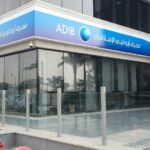- Sustainable Finance Milestone: ADIB has mobilised AED 17.3 billion toward its AED 60 billion sustainable finance goal by 2030.
- Sectoral Emissions Targets: First Islamic bank in the region to publish 2030 financed emissions targets across six high-impact sectors.
- Credible ESG Governance: Completed a Double Materiality Assessment under ESRS and published its inaugural Green Sukuk impact report.
Abu Dhabi Islamic Bank (ADIB) has mobilised AED 17.3 billion (USD 4.7 Billion) in sustainable finance as of year-end 2024—marking significant progress toward its AED 60 billion target by 2030. This update was published in the bank’s 2024 Sustainability Report, which outlines progress in climate alignment, inclusive growth, and ESG governance aligned with the UAE Net Zero 2050 strategy and the UAE 2031 vision.
A key milestone in this report is ADIB’s launch of interim 2030 financed emissions reduction targets, making it the first Islamic bank in the region to publish such targets. The goals span six high-emission sectors—including real estate, utilities, and home finance—and are aligned with IEA Net Zero scenarios and national decarbonisation objectives.
In support of transparent, globally recognised sustainability practices, ADIB conducted a Double Materiality Assessment in accordance with the European Sustainability Reporting Standards (ESRS). This assessment evaluated both financial and societal impacts across environmental, social, and governance dimensions, and is designed to uncover key impacts, risks, and opportunities (IROs) affecting the economy, people, and planet.
“Putting sustainability at the heart of what we do is one of the three key pillars of our 2035 vision,” said Mohamed Abdelbary, Group Chief Executive Officer at ADIB.
“Our latest sustainability disclosures reflect our steadfast commitment to ethical, inclusive, and climate-aligned banking. From leading the region in green sukuk to setting the benchmark on sectoral decarbonisation, we are taking decisive steps toward a low-carbon future.”

ADIB also released its first Green Sukuk allocation and impact report, following its USD 500 million issuance. By December 2024, 90% of proceeds had been allocated to renewable energy, energy efficiency, and sustainable water infrastructure projects—resulting in an estimated 607,000 tonnes of annual avoided emissions.
Operationally, ADIB reported a 87% reduction in Scope 1 emissions and a 3.51% decrease in Scope 2 emissions compared to 2022. These achievements stem from energy efficiency upgrades, electrification, and optimisation initiatives across the Group.
RELATED ARTICLE: Dubai Islamic Bank To Raise $1 Billion with Sustainable Sukuk
Abdelbary added: “Our double materiality assessment reinforces ADIB’s commitment to credible, decision-useful disclosure. It ensures we understand not only how sustainability impacts our business but how our business impacts the environment, society and economy. This is central to how we plan, report and act.”
On the social front, ADIB achieved a 44% Emiratisation rate, with women comprising 72% of UAE national hires and 39% of the overall workforce. Employees received an average of 62 hours of training, and the bank partnered with over 140 community organisations focused on financial inclusion, education, and social welfare.
ADIB continues to receive strong ESG ratings, including:
- ‘AA’ from MSCI
- 74 from LSEG ESG
- 41 from DJSI
The bank has also been recognised as the Best Islamic Bank for ESG by both Global Finance and MEED, reinforcing its leadership in responsible and sustainable Islamic finance.
Follow ESG News on LinkedIn
The post ADIB Commits $4.7 B in Sustainable Finance and Sets 2030 Emissions Targets appeared first on ESG News.
